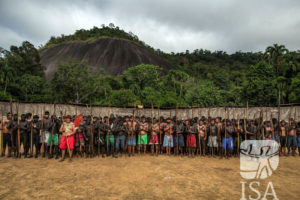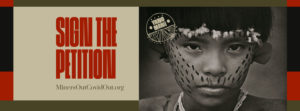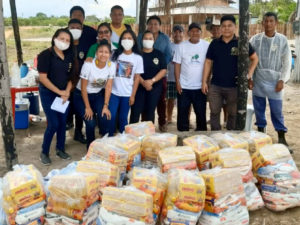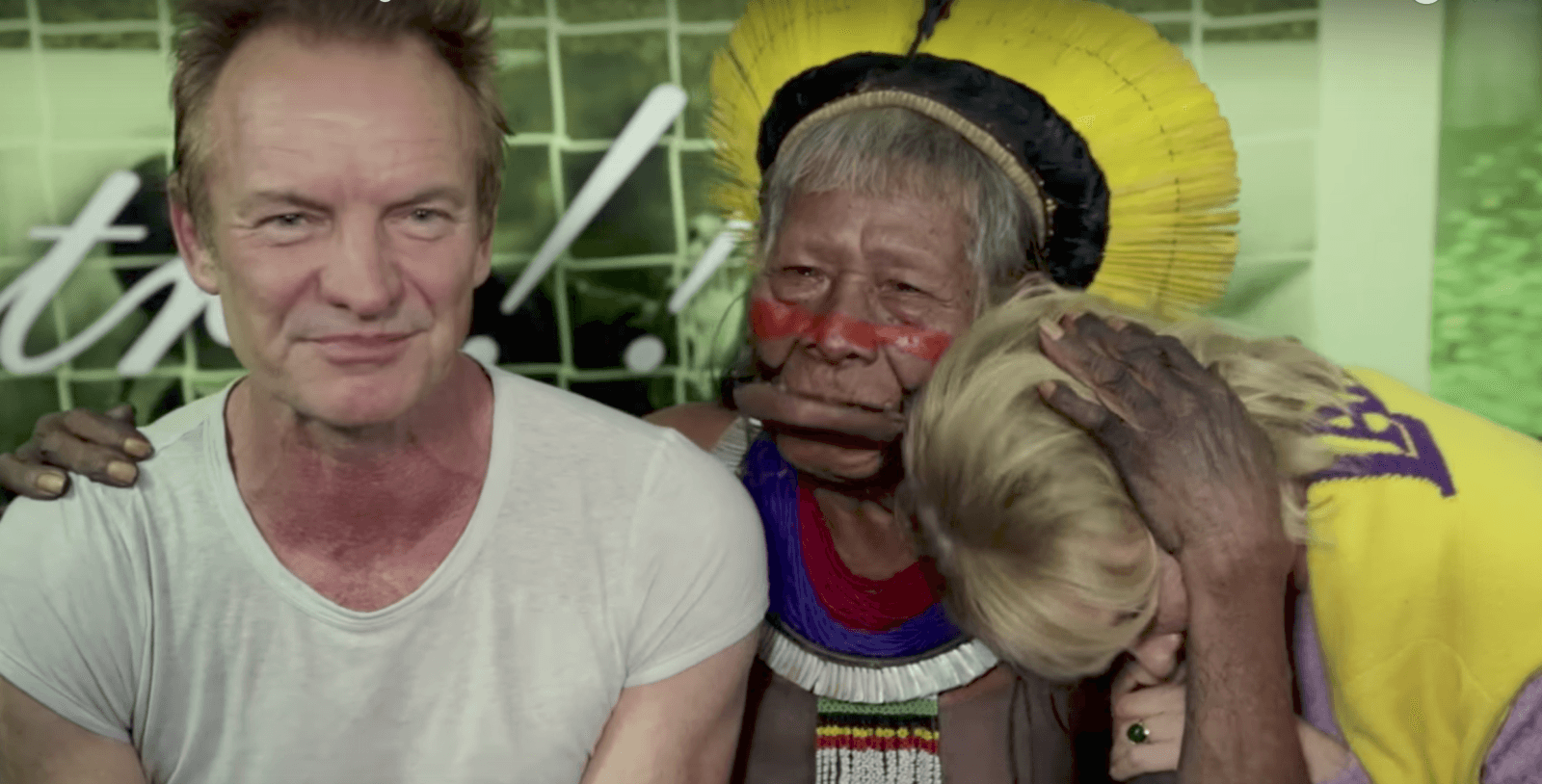Sting reunites with Chief Raoni of the Kayapo people in Brazil
The Genocide No One Is Talking About
The “Genocide of Brazil’s Indians” is the sort of headline that we hoped had been left behind in the 1980’s. Unfortunately, recent events in Brazil demonstrate that we are in the midst of a resurgence of ethnic violence.
Since the 1980’s – when headlines of this sort were tragically common – indigenous peoples in Brazil have made huge strides. Against enormous odds and with the help of domestic and international allies, about 20% of the Brazilian Amazon has come under the protection of indigenous peoples. These forests benefit from the strongest legal protections in the country — their rights are enshrined in the Constitution. As a result of this protection, deforestation rates dropped significantly from their mid-1990’s high. Rainforest Foundation US (RFUS) is proud to have been part of that struggle — indeed it is where we began.
Today, however, all of that is being unraveled by the government, for the sake of expanding agribusiness profits. So far, rainforest lands have lost their protected status, environmental and indigenous rights are being gutted, and there is a marked increase in anti-native violence. Brazil is already notorious as one of the most dangerous places for indigenous and environmental defenders: in the last 13 years, 900 indigenous people have lost their lives for making basic claims to their human rights. Most of these murders have gone unpunished, if they have been investigated at all.
Just in the past few weeks, ten indigenous workers were murdered by the police in the Western Amazon. Local politicians endorse the crime, calling for public celebrations to honor the “patriots” responsible. In another part of Brazil, thirteen Gamela indigenous people were viciously attacked for defending their lands; some had their hands chopped off, while others were shot in the back. The Guarani Kaiowa in Mato Grosso do Sul have suffered almost incessant attacks over the past several years, including the murder of their tribal leaders.
Indigenous lands and protected areas are also under direct attack. Environmental regulations are being gutted, and almost 1.5 million acres of protected areas lost their designation as protected land. A proposed law that would move demarcating indigenous lands from the Executive to Congress – dominated by the agribusiness lobby – is developing rapidly, threatening not only future demarcations, but potentially existing ones. FUNAI, the agency tasked with ensuring indigenous rights is at risk of losing the little power and budget it has, and there is speculation that Brazil’s government wants to eliminate the agency altogether. The current situation in Brazil is, without qualification, a genocide.
Read More

Murder of Two Yanomami by Illegal Miners Heightens Fears of Renewed Cycle of Violence in the Brazilian Amazon
The murders reinforce the need for the Brazilian government to immediately expel the more than 20,000 miners illegally operating on Yanomami land.

Miners Out, COVID-19 Out: The Yanomami and Ye’Kwana People of the Brazilian Amazon Launch a Global Campaign to Expel Miners From Their Territory
Indigenous leaders demand the urgent removal of 20,000 illegal gold miners from their lands to prevent the spread of COVID-19

Voices from the Ground: COVID-19 Response in Roraima, Brazil
An interview with the Legal Advisor for the Indigenous Council of Roraima about adressing COVID-19 in his territory.
Support Our Work
Rainforest Foundation US is tackling the major challenges of our day: deforestation, the climate crisis, and human rights violations. Your donation moves us one step closer to creating a more sustainable and just future.


